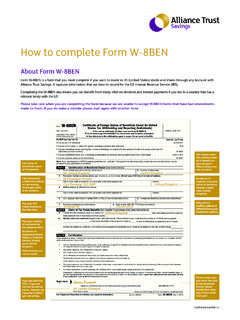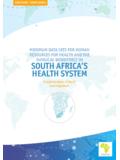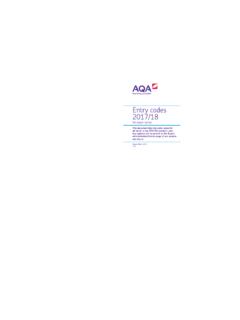Transcription of HEALTH CONDITIONS IN SCHOOLS ALLIANCE www ...
1 HEALTH CONDITIONS IN SCHOOLS MEDICAL CONDITIONS POLICYPOLICY STATEMENTThis school is an inclusive community that welcomes and supports pupils with medical school provides all pupils with any medical condition the same opportunities as others at will help to ensure they can: be healthy stay safe enjoy and achieve make a positive contribution achieve economic wellbeing once they leave school makes sure all staff understand their duty of care to children and young people in the event of an staff feel confident in knowing what to do in an school understands that certain medical CONDITIONS are debilitating and potentially life threatening.
2 Particularly if poorly managed or school understands the importance of medication and care being taken as directed by healthcare professionals and staff understand the medical CONDITIONS that affect pupils at this school. Staff receive training on the impact medical CONDITIONS can have on named member of school staff responsible for this medical CONDITIONS policy and its implementation is:This school is an inclusive community that supports and welcomes pupils with medical CONDITIONS . This school is welcoming and supportive of pupils with medical CONDITIONS .
3 It provides children with medical CONDITIONS with the same opportunities and access to activities (both school based and out-of-school) as other pupils. No child will be denied admission or prevented from taking up a place in this school because arrangements for their medical condition have not been made. This school will listen to the views of pupils and parents. Pupils and parents feel confident in the care they receive from this school and the level of that care meets their needs. Staff understand the medical CONDITIONS of pupils at this school and that they may be serious, adversely affect a child s quality of life and impact on their ability to learn.
4 All staff understand their duty of care to children and young people and know what to do in the event of an emergency. The whole school and local HEALTH community understand and support the medical CONDITIONS policy. This school understands that all children with the same medical condition will not have the same needs. The school recognises that duties in the Children and Families Act (England only), the Equality Act (England, Wales and Scotland) and the Disability Discrimination Act (Northern Ireland only) relate to children with disability or medical CONDITIONS and are frameworkThe policy framework describes the essential criteria for how the school can meet the needs of children and young people with long-term medical school s medical CONDITIONS policy is drawn up in consultation with a wide range of local key stakeholders within both the school and HEALTH settings.
5 Stakeholders should include pupils, parents, school nurse, school staff, governors, the school employer, relevant local HEALTH services and relevant supporter organisations. The medical CONDITIONS policy is supported by a clear communication plan for staff, parents* and other key stakeholders to ensure its full implementation. Pupils, parents, relevant local healthcare staff, and other external stakeholders are informed of and reminded about the medical CONDITIONS policy through clear communication children with a medical condition should have an individual healthcare plan (IHP).
6 An IHP details exactly what care a child needs in school, when they need it and who is going to give it. It should also include information on the impact any HEALTH condition may have on a child s learning, behaviour or classroom performance. This should be drawn up with input from the child (if appropriate) their parent/carer, relevant school staff and healthcare professionals, ideally a specialist if the child has staff understand and are trained in what to do in an emergency for children with medical CONDITIONS at this school.
7 All school staff, including temporary or supply staff, are aware of the medical CONDITIONS at this school and understand their duty of care to pupils in an emergency. All staff receive training in what to do in an emergency and this is refreshed at least once a year. A child s IHP should, explain what help they need in an emergency. The IHP will accompany a pupil should they need to attend hospital. Parental permission will be sought and recorded in the IHP for sharing the IHP within emergency care settings. 23456 All staff understand and are trained in the school s general emergency procedures.
8 All staff, including temporary or supply staff, know what action to take in an emergency and receive updates at least yearly. If a pupil needs to attend hospital, a member of staff (preferably known to the pupil) will stay with them until a parent arrives, or accompany a child taken to hospital by ambulance. They will not take pupils to hospital in their own car. This school has clear guidance on providing care and support and administering medication at school. This school understands the importance of medication being taken and care received as detailed in the pupil s IHP.
9 This school will make sure that there are more than one members of staff who have been trained to administer the medication and meet the care needs of an individual child. This includes escort staff for home to school transport if necessary. This school will ensure that there are sufficient numbers of staff trained to cover any absences, staff turnover and other contingencies. This school s governing body has made sure that there is the appropriate level of insurance and liability cover in place. This school will not give medication (prescription or non-prescription) to a child under 16 without a parent s written consent except in exceptional circumstances, and every effort will be made to encourage the pupil to involve their parent, while respecting their confidentiality.
10 When administering medication, for example pain relief, this school will check the maximum dosage and when the previous dose was given. Parents will be informed. This school will not give a pupil under 16 aspirin unless prescribed by a doctor. This school will make sure that a trained member of staff is available to accompany a pupil with a medical condition on an off-site visit, including overnight stays. Parents at this school understand that they should let the school know immediately if their child s needs change. 7 If a pupil misuses their medication, or anyone else s, their parent is informed as soon as possible and the school s disciplinary procedures are followed.





